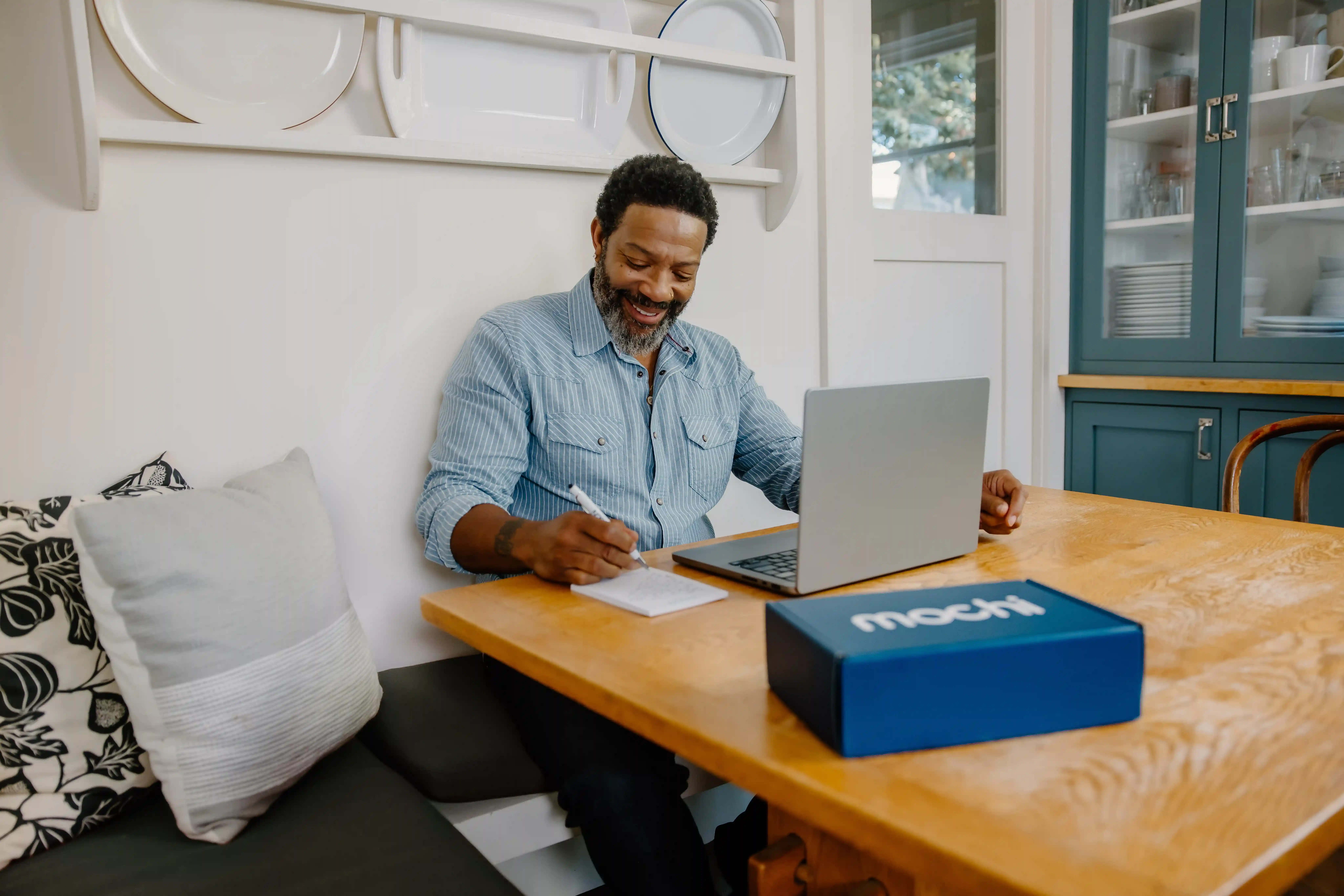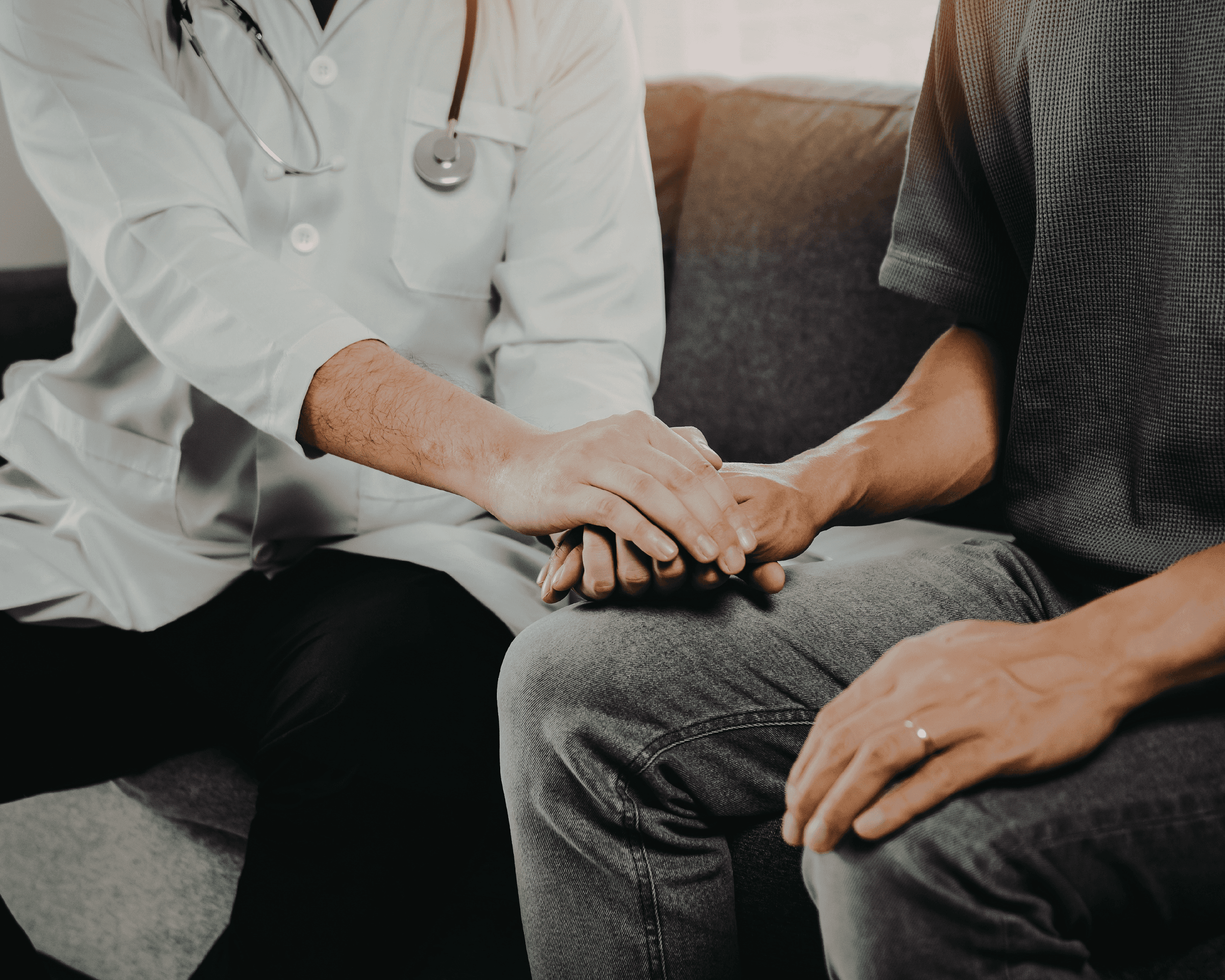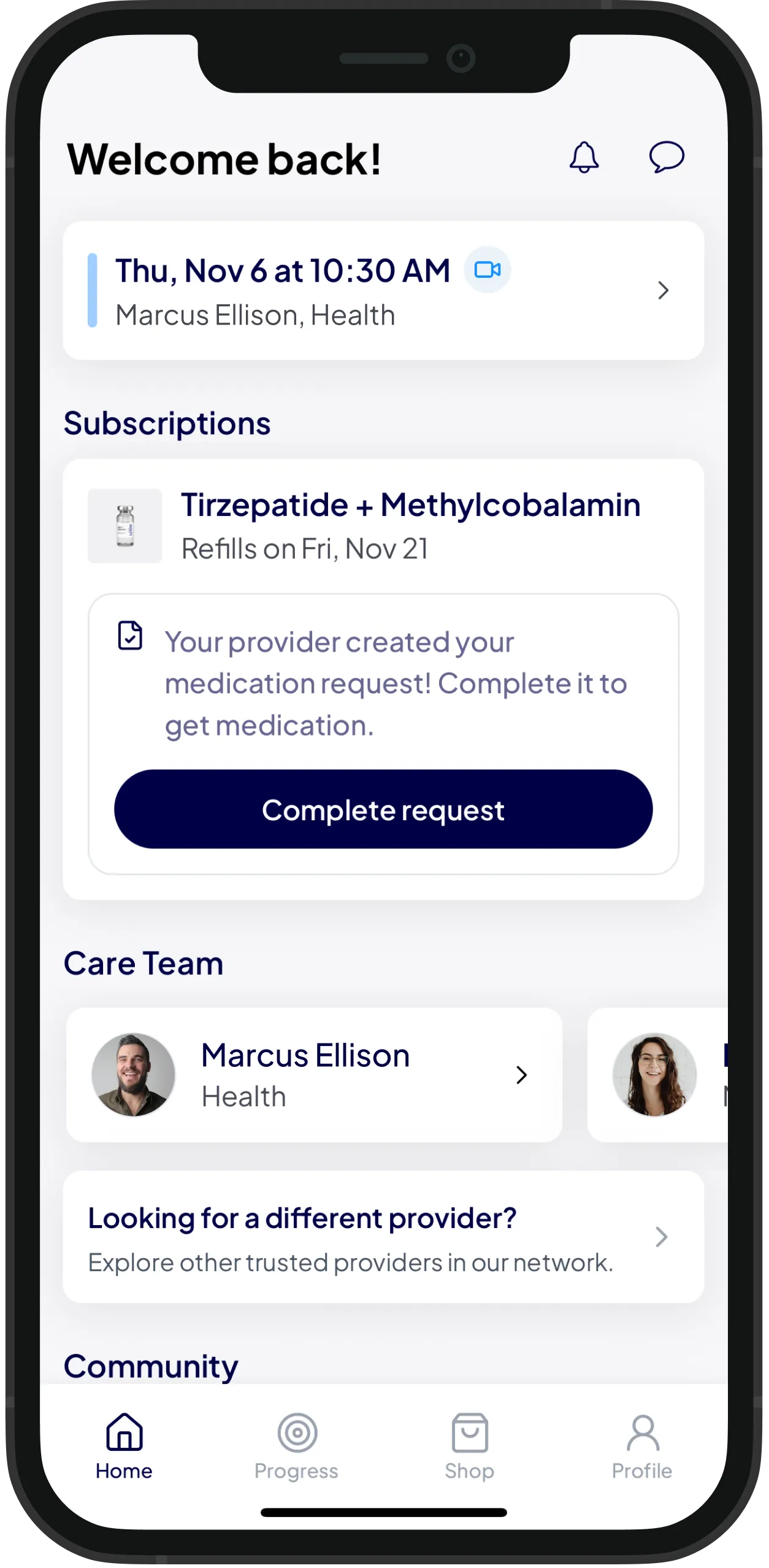Ready to transform your health?
Unlock access to expert guidance and a weight care plan crafted just for you.
Similar Articles
Similar Articles

GLP-1s for Pre-diabetes: Can You Prevent Type II Diabetes?
GLP-1s for Pre-diabetes: Can You Prevent Type II Diabetes?

Is Long-Term GLP-1 Use Safe? What 10-Year Data Suggests
Is Long-Term GLP-1 Use Safe? What 10-Year Data Suggests

GLP 1s and Cardiometabolic Health: How These Medications Support the Heart and Long Term Wellness
GLP 1s and Cardiometabolic Health: How These Medications Support the Heart and Long Term Wellness
Constipation on GLP-1 Medications
Constipation is a common side effect of GLP-1 medications (dulaglutide, exenatide, semaglutide, liraglutide, type of drug used to treat type 2 diabetes, pre-diabetes, & obesity

Table of Contents
Table of Contents
Overview
How GLP-1 Medications Cause Constipation
Complications of Constipation
Combating Constipation While on GLP-1 Medications
Overview
How GLP-1 Medications Cause Constipation
Complications of Constipation
Combating Constipation While on GLP-1 Medications
Overview
Constipation is a common side effect of GLP-1 medications (dulaglutide, exenatide, semaglutide, liraglutide), which are a type of drug used to treat type 2 diabetes, pre-diabetes, and obesity. These medications work by increasing insulin production, decreasing appetite, and slowing down digestion. While these effects can be beneficial for managing diabetes and weight, they can also lead to constipation – a frustrating and uncomfortable side effect!

How GLP-1 Medications Cause Constipation
The exact mechanism by which GLP-1 medications cause constipation is not well understood, but it is thought to be related to the slowing down of digestion. When the digestive process is slowed, food moves more slowly through the intestines, leading to harder stools and difficulty passing them. Like constipation, the other gastrointestinal (GI) side effects of GLP-1 medications, like nausea, vomiting and diarrhea, are all thought to be dose-dependent.
In a recent study published in the “Diabetes, Obesity, and Metabolism” journal, GI side effects (including constipation) were evaluated in patients taking weekly semaglutide compared to placebo. They found that patients taking GLP-1 medications reported more GI side effects than those taking placebo and that constipation tended to last longer than side effects like nausea, vomiting, and diarrhea, which usually improved after a few days, in those on semaglutide. Constipation was only reported as a side effect for 24.2% of patients taking semaglutide, vs. 11.1% in the placebo group. Nausea was much more common in patients on semaglutide, with 43.9% of patients experiencing this side effect.
Complications of Constipation
Not only is constipation annoying, it can also lead to other health complications. For example, if stools remain in the intestines for too long, they can become very dry and difficult to pass, leading to straining while using the toilet that can cause tears and fissures in the anus. These can be incredibly painful and difficult to heal. Constipation can also lead to nausea, bloating, abdominal pain, and rectal bleeding.
Combating Constipation While on GLP-1 Medications
There are a few things you can try to alleviate constipation while taking GLP-1 medications:
Drink plenty of fluids: Staying hydrated is important for overall health, and it can also help to soften stools and make them easier to pass. Aim for at least 8 cups of water daily. An easy way to incorporate more water is to drink a full glass of water before each meal. This can also help you feel full faster!
Eat a high-fiber diet: Including plenty of fiber-rich foods in your diet, such as fruits, vegetables, whole grains, and legumes, can help to bulk up stools and make them easier to pass. Fiber supplements are readily available at the drugstore if you have a hard time getting enough with raw foods. UCSF Health suggests at least 25-30 grams of fiber daily, and it’s best if this does not all come from supplements. You can read more about fiber here.
Exercise regularly: Regular physical activity can help to stimulate the digestive system and promote regular bowel movements.
Explore over-the-counter remedies: There are a number of over-the-counter medications that can help to alleviate constipation, such as stool softeners and laxatives – although these should be used cautiously. Speak to your provider about which are most ideal for your type of constipation.

Conclusion
If these measures are not effective, your doctor may recommend a prescription medication to help relieve constipation. It is important to talk to your doctor about any side effects you are experiencing while on GLP-1 medications, as they may be able to adjust your medication or suggest alternative treatments. In conclusion, constipation is a common side effect of GLP-1 medications, but it can usually be managed with lifestyle changes and over-the-counter remedies.
Ask Mochi Health!
If you are interested in starting a GLP-1 medication for assisted weight loss, but are worried about the side effects or have other questions and concerns, Mochi Health can help. Our physicians are experts at helping you select the best medication for your unique situation and can counsel you on what to expect while taking them. Learn more here! If you are already a Mochi Health patient and are experiencing any new or unpleasant side effects from your medication, do not hesitate to reach out through our chat function. We are here for you!
Sources
Wharton S, Calanna S, Davies M, et al. Gastrointestinal tolerability of once-weekly semaglutide 2.4 mg in adults with overweight or obesity, and the relationship between gastrointestinal adverse events and weight loss. Diabetes Obes Metab. 2022;24(1):94-105. doi:10.1111/dom.14551
National Institute of Diabetes and Digestive and Kidney Diseases. (2018). Constipation. Retrieved from https://www.niddk.nih.gov/health-information/digestive-diseases/constipation.
UCSF Health. “Increasing Fiber Intake.” Ucsfhealth.org, UCSF Health, 24 June 2022, https://www.ucsfhealth.org/education/increasing-fiber-intake.
Overview
Constipation is a common side effect of GLP-1 medications (dulaglutide, exenatide, semaglutide, liraglutide), which are a type of drug used to treat type 2 diabetes, pre-diabetes, and obesity. These medications work by increasing insulin production, decreasing appetite, and slowing down digestion. While these effects can be beneficial for managing diabetes and weight, they can also lead to constipation – a frustrating and uncomfortable side effect!

How GLP-1 Medications Cause Constipation
The exact mechanism by which GLP-1 medications cause constipation is not well understood, but it is thought to be related to the slowing down of digestion. When the digestive process is slowed, food moves more slowly through the intestines, leading to harder stools and difficulty passing them. Like constipation, the other gastrointestinal (GI) side effects of GLP-1 medications, like nausea, vomiting and diarrhea, are all thought to be dose-dependent.
In a recent study published in the “Diabetes, Obesity, and Metabolism” journal, GI side effects (including constipation) were evaluated in patients taking weekly semaglutide compared to placebo. They found that patients taking GLP-1 medications reported more GI side effects than those taking placebo and that constipation tended to last longer than side effects like nausea, vomiting, and diarrhea, which usually improved after a few days, in those on semaglutide. Constipation was only reported as a side effect for 24.2% of patients taking semaglutide, vs. 11.1% in the placebo group. Nausea was much more common in patients on semaglutide, with 43.9% of patients experiencing this side effect.
Complications of Constipation
Not only is constipation annoying, it can also lead to other health complications. For example, if stools remain in the intestines for too long, they can become very dry and difficult to pass, leading to straining while using the toilet that can cause tears and fissures in the anus. These can be incredibly painful and difficult to heal. Constipation can also lead to nausea, bloating, abdominal pain, and rectal bleeding.
Combating Constipation While on GLP-1 Medications
There are a few things you can try to alleviate constipation while taking GLP-1 medications:
Drink plenty of fluids: Staying hydrated is important for overall health, and it can also help to soften stools and make them easier to pass. Aim for at least 8 cups of water daily. An easy way to incorporate more water is to drink a full glass of water before each meal. This can also help you feel full faster!
Eat a high-fiber diet: Including plenty of fiber-rich foods in your diet, such as fruits, vegetables, whole grains, and legumes, can help to bulk up stools and make them easier to pass. Fiber supplements are readily available at the drugstore if you have a hard time getting enough with raw foods. UCSF Health suggests at least 25-30 grams of fiber daily, and it’s best if this does not all come from supplements. You can read more about fiber here.
Exercise regularly: Regular physical activity can help to stimulate the digestive system and promote regular bowel movements.
Explore over-the-counter remedies: There are a number of over-the-counter medications that can help to alleviate constipation, such as stool softeners and laxatives – although these should be used cautiously. Speak to your provider about which are most ideal for your type of constipation.

Conclusion
If these measures are not effective, your doctor may recommend a prescription medication to help relieve constipation. It is important to talk to your doctor about any side effects you are experiencing while on GLP-1 medications, as they may be able to adjust your medication or suggest alternative treatments. In conclusion, constipation is a common side effect of GLP-1 medications, but it can usually be managed with lifestyle changes and over-the-counter remedies.
Ask Mochi Health!
If you are interested in starting a GLP-1 medication for assisted weight loss, but are worried about the side effects or have other questions and concerns, Mochi Health can help. Our physicians are experts at helping you select the best medication for your unique situation and can counsel you on what to expect while taking them. Learn more here! If you are already a Mochi Health patient and are experiencing any new or unpleasant side effects from your medication, do not hesitate to reach out through our chat function. We are here for you!
Sources
Wharton S, Calanna S, Davies M, et al. Gastrointestinal tolerability of once-weekly semaglutide 2.4 mg in adults with overweight or obesity, and the relationship between gastrointestinal adverse events and weight loss. Diabetes Obes Metab. 2022;24(1):94-105. doi:10.1111/dom.14551
National Institute of Diabetes and Digestive and Kidney Diseases. (2018). Constipation. Retrieved from https://www.niddk.nih.gov/health-information/digestive-diseases/constipation.
UCSF Health. “Increasing Fiber Intake.” Ucsfhealth.org, UCSF Health, 24 June 2022, https://www.ucsfhealth.org/education/increasing-fiber-intake.
Read next
Ready to transform your health?
Unlock access to expert guidance and a weight care plan crafted just for you.

Ready to transform your health?
Unlock access to expert guidance and a weight care plan crafted just for you.

Ready to transform your health?
Unlock access to expert guidance and a weight care plan crafted just for you.


© 2026 Mochi Health
All professional medical services are provided by licensed physicians and clinicians affiliated with independently owned and operated professional practices. Mochi Health Corp. provides administrative and technology services to affiliated medical practices it supports, and does not provide any professional medical services itself.


© 2026 Mochi Health
All professional medical services are provided by licensed physicians and clinicians affiliated with independently owned and operated professional practices. Mochi Health Corp. provides administrative and technology services to affiliated medical practices it supports, and does not provide any professional medical services itself.


© 2026 Mochi Health
All professional medical services are provided by licensed physicians and clinicians affiliated with independently owned and operated professional practices. Mochi Health Corp. provides administrative and technology services to affiliated medical practices it supports, and does not provide any professional medical services itself.
















